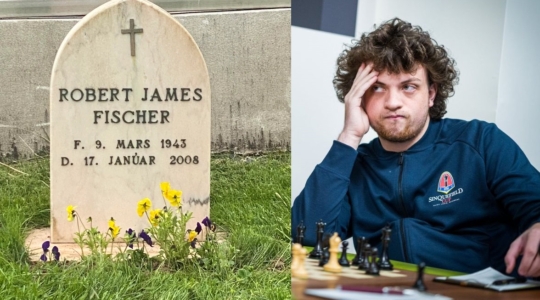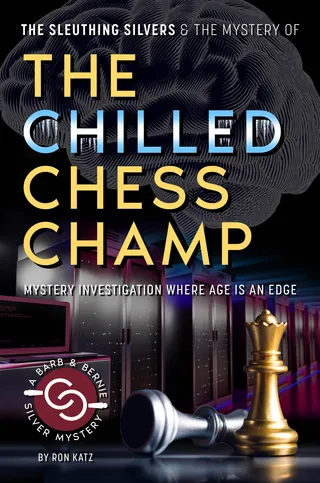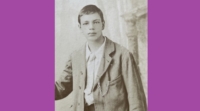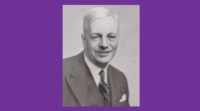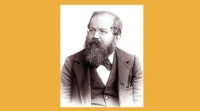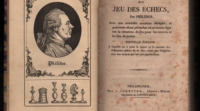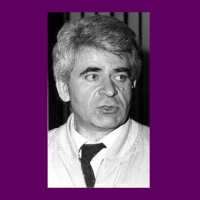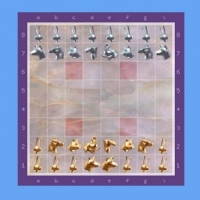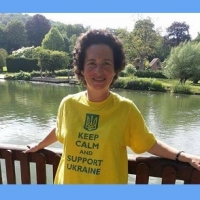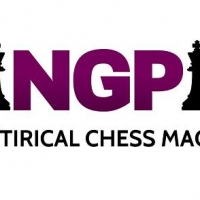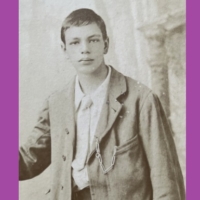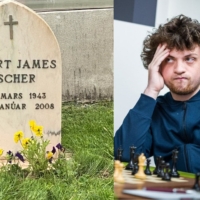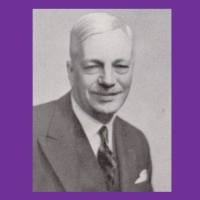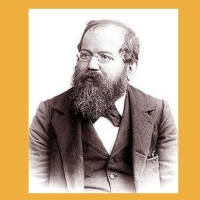Ron Katz*
The Carlsen/Niemann/Chess.com dust-up has recently been resolved, but not explained. This fictional explanation fills that gap…
“According to this article,” Barb Silver said to her husband, Bernie, “Baby Boomers like us are responsible for inflation.” She was peering over the newspaper she held, as they had their second cup of coffee in the kitchen nook of their Palo Alto home.
“I’m not surprised,” he responded. “Aren’t selfish Baby Boomers taking the blame for all of the world’s ills?”
“Yes,” responded Barb, “but this one has some logic to it: a huge generation is reaching retirement age, and they are still consuming, but not producing. That means demand stays the same, but supply goes down, the same amount of money chasing fewer goods. Therefore, according to this article at least, prices go up.”
“So, what am I supposed to do?” he said. “Commit hara-kiri?”
“That would be extreme,” she said. “Maybe just follow the Eskimo custom of putting the elderly on an ice floe in a body of water and letting nature take its course.”
“Which is exactly why I live in sunny California,” he rejoined.
At that moment, the screen on his cellphone flared, exhibiting the number of Professor Vladimir Osofsky, the chair of the art history department at Stanford. Osofsky had worked with Barb and Bernie on some of the cases their detective agency, Silver Investigations, had investigated having to do with art fraud and theft. They had started the agency as a part-time gig, after their retirement as investigators from Alpha Insurance Company.
“Nice to hear from you Ozzie,” exclaimed Bernie, using his nickname for Osofsky. He put the phone on speaker. “We were just talking about younger people like you over our morning newspapers and coffee.”
“Saying nice things, no doubt,” said Osofsky. “On another subject, did you see the article on the front page about the accusations of cheating at a major chess tournament?”
“We saw it,” chimed in Barb, “but, although our son, Daniel is a pretty good player, we’re not very knowledgeable about or interested in chess.”
“You didn’t know much about Jackson Pollock either,” Osofsky responded, “but that didn’t stop you from solving a case about that stolen painting.”
“That Pollock was worth tens of millions of dollars,” said Bernie. “How much can possibly be riding on this chess dispute?”
“$100 million,” answered Osofsky.
“In that case, can we buy you lunch today?” asked Barb.
“Let’s meet at the Faculty Club,” said Osofsky. “I’d like to introduce you to one of my colleagues, the head of our computer science department.”
“What do computers have to do with chess?” inquired Bernie.
“Lots,” said Osofsky. “All will be revealed as you enjoy your Faculty Club favorite—Farm Burgers—at noon.”
***
“I thought you had crossed burgers off your list, Bernie,” said Barb as they walked into the dining room of the Stanford Faculty Club.
“We’re on the Farm,” Bernie said—referring to Stanford’s nickname, derived from the fact that the campus was originally a farm owned by Leland Stanford—“It’s simply not possible to ignore Farm Burgers.”
“If it’s not possible,” she said, “then you’ll have to do the impossible, by ordering the newest item on the menu, an Impossible Burger.”
By this time, they had reached the table where Osofsky was sitting. While they exchanged the obligatory hugs, Bernie pleaded, “Ozzie, help me argue against Barb, who wants me to put some poor cow out of business by ordering plant-based imitation meat.”
“Even if I agreed with you,” responded Ozzie, “which I don’t, I’m not sure the cow does much better under your scenario. Besides, you should know that they say there’s only two results if you argue with your wife.”
“And those are…?” Bernie asked.
“You either lose, or you wish you had lost.”
“Ok,” said Bernie. “Impossible Burgers all around.”
As they sat down, they saw an elegant, middle-aged Asian man approaching their table. With salt-and-pepper hair drawn back into a short ponytail, he was wearing a blue blazer, khakis, a perfectly pressed white shirt, and a red bowtie, looking much more stylish than the average Stanford professor.
“Ray,” greeted Osofsky, “meet the detectives I was telling you about, Barb and Bernie Silver. Barb and Bernie, this is Raymond Chen, the chair of Stanford’s biggest department, Computer Science.”
“I would say it’s nice to meet you,” said Chen in clipped, slightly accented English, “but I never expected that I would be meeting detectives.”
“Makes sense,” said Bernie. “Computer science is cold logic. Detective work is a hot mess.”
A waiter approached their table. He obviously knew Professor Chen, greeting him by name and taking his order first. “Will it be the usual, professor?”
“Yes,” Chen responded. “One Farm Burger, medium rare.”
***
As they were having their coffee after the meal, Osofsky got to the point. “I met Ray when I was doing some research on computerized art. I noticed a chess board in his office, and I challenged him to a game.”
“It was more of an exhibition for me,” said Chen. “’Game’ implies that the result is uncertain.”
“That’s true,” said Osofsky. “Chess is a game where the higher-ranked player almost always beats the lower-ranked player. But then Ray evened up the odds by giving me a watered-down version of a chess-playing computer program developed by one of his grad students. Then we really did have some good games.”
“All very interesting,” observed Bernie. “But pardon me if I’m not seeing a $100 million problem.”
“Top chess players make millions of dollars,” responded Chen. “The world champion, Magnus Carlsen of Norway, has supplemented his chess winnings by starting an online chess training company called Play Magnus. The largest chess platform in the world, Chess.com, made an $82 million offer for Play Magnus the week before the Sinquefield Cup, a major tournament that occurred in St. Louis last month.”
“At that tournament a lower-rated player than Carlsen, a 19-year old named Hans Niemann, quite unexpectedly defeated Carlsen. Even more unexpectedly, the world champion then quit the Sinquefield Cup and, by innuendo, accused Niemann of cheating. That claim was echoed by Chess.com, which banned Niemann from its platform.”
“And?” asked Barb.
“And,” responded Chen, “Niemann then sued Carlsen and Chess.com for $100 million in Federal Court in St. Louis.
“How are you involved in all this?” asked Bernie. “I’m not seeing the computer science.”
“I’d be glad to show you some, if you accompany me back to my office,” said Chen.
“Delighted to come over for a byte.” said Bernie.
***
The four of them walked across campus to a gleaming complex of sleek buildings connected by glass-enclosed bridges over water installations of fountains and what appeared to be babbling brooks. “There must be some money in computer science,” noted Bernie. Chen just looked at him with a bemused smile.
They entered a large, modern office that didn’t seem to have any right angles. The walls were covered with prints of dazzling shapes and colors.
“Computerized art,” said Osofsky, pointing. “It won’t be very long until artificial intelligence can reproduce the Mona Lisa in five minutes.”
“I’m very grateful to Professor Osofsky,” said Chen, “for advising me how to turn these paintings into very valuable NFT’s.”
“NFT’s?” queried Bernie.
“Non-fungible tokens,” responded Chen. “But let’s leave it at that. You have a lot to learn today about chess and computers, so let’s not overload the circuits.”
“Speaking of which,” said Barb, standing by a marble chess board embedded into a teak table at one end of the office, “aside from this lovely table, where do computers and chess meet up in this office?”
“I’ll answer a question with a question,” said Chen. “Have you heard of Deep Blue?”
“Answering your question/answer with another question,” said Bernie, “isn’t that an IBM computer that played chess?”
“Correct,” said Chen. “Deep Blue was capable of evaluating 200 million chess positions in one second. Not surprisingly, it defeated the human world chess champion in 1997. Then Deep Blue was retired.”
“I’m beginning to see the chess-computer connection,” said Barb. “But Deep Blue is retired, so, presumably, it’s not the culprit.”
“True,” said Chen, “but Deep Blue inspired a number of similar programs. One with even more brute computer force than Deep Blue was being secretly developed at Stanford. It’s called Ice Blue. Its inventor was a programmer named Dmitri Slobodin, who was, while programming 16 hours a day, taking an interminable approach to a terminal degree in computer science, an M.A.”
“Was?” asked Bernie.
“Correct,” said Chen. “Slobodin had the exercise and diet regime of many computer programmers. He didn’t use much of his body, which he mainly nourished with pizza, except for his brain and his fingers. Here’s a picture of him.”
Barb took Chen’s smartphone and looked at a picture of a pale, overweight man with an unkempt beard, wearing a none-too-clean t-shirt and faded jeans. He was sitting at a table with a background of pictures of chess matches. “Please email me this picture,” she said, “just in case we need it. What happened to Mr. Slobodin?”.
“He loved only two things as far as I could tell,” responded Chen: “computers and chess. He did very well in online chess—perhaps because he had some under-the-table help from Ice Blue. But then, just a week ago, he entered a high-stakes over-the-board tournament—one where real people play in real time—and he suffered a heart attack in the middle of a particularly stressful match.”
“Well at least he died doing something he loved,” noted Bernie.
“I’ve never understood why people say that,” said Chen. “Seems to me it’d be better if you died doing something you hate. Then you wouldn’t have to do it anymore.”
“There’s that cold, computer science logic again,” said Barb. “Getting back to the sloppier, human side of things, let me ask you—since I can’t ask Slobodin–what might seem like a silly question: do you know why he chose the name ‘Ice Blue’?”
“Computer programmers,” responded Chen, “have a lot of random connections in their heads—that’s what makes them good at what they do. I don’t know what particular connection, if any, led to Ice Blue.”
“Let me try another tack,” said Bernie. “Why does your computer science department care about the Niemann/Carlsen-Chess.com dispute?”
“We have many young, billionaire donors,” replied Chen, “and one of them, a venture capitalist who likes chess, financed Ice Blue. His ambition, I think, was to launch Dmitri in one of the spacecraft in the rocket company that the venture capitalist owns and have Dmitri play chess, aided by Ice Blue, from space against all comers.”
“Sort of an out-there idea,” said Bernie, “but I don’t see anything illegal or immoral.”
“No, but, unfortunately, if one tracked Hans Niemann’s winning moves at the Sinquefield Cup, one could see that they are very close to what Ice Blue’s program recommended. If Magnus Carlsen found that out, he could sue Stanford, or, more precisely, include Stanford in his counterclaim against Niemann. An additional risk factor is that Niemann was actually born in the Bay Area, so it’s possible he knew Dmitri.”
“But Carlsen doesn’t know about a possible connection between Niemann and Ice Blue, so what’s the problem?” inquired Barb.
“Carlsen and Chess.com have the resources to figure that connection out, especially given the broad discovery rights in lawsuits. Quite simply, neither Stanford nor our donor want to get anywhere near a $100 million lawsuit.”
“I’m not seeing how we can be of help,” said Bernie. “Our lack of knowledge of chess is exceeded only by our lack of knowledge of computers.”
“I can’t disagree with you there, Mr. Silver,’ said Chen, “and, quite frankly, our donor wants us to retain Kroll.”
“It’s true we can’t match Kroll’s resources,” said Barb, describing one of the largest investigative firms: “6500 employees in 72 locations around the globe. But I’m not sure that Kroll’s corporate approach can reproduce the kind of intuition we use to solve cases.”
“Some might call it ‘creative brilliance,’” added Bernie. “But don’t let us stop you from retaining Kroll. Some people like big, dumb corporate animals.”
“Being somewhat risk averse, I agree that bigness can be attractive,” said Chen. “As they used to say in the computer business, even though IBM was not always the best solution, ‘no one ever got fired for buying IBM.’ But, when I confided to Professor Osofsky that I was about to retain Kroll, he told me of some of your recent good results on tricky cases and recommended that I consider you. He said he’d even buy lunch.”
“In fairness to you, Professor Chen,” said Barb, “aside from not having Kroll’s resources, we are, in case you haven’t noticed, somewhat older than the average Kroll investigator.”
“That doesn’t bother me at all,” said Chen, pulling out a piece of computer paper covered with ones and zeroes. “What I’m showing you is one of the most elegant and powerful pieces of computer code ever written. Can you tell how old it is?
“Not a chance,” said Bernie.
“That’s my point,” said Chen. “For me, results trump age any day of the week. So, shall we get started and see if you can beat out Kroll?”
“What exactly is the assignment,” asked Bernie, “and how much time do we have to come up with a plan? Keep in mind that my idea of advanced technology is a remote garage door opener.”
“Two days is the answer to your second question,” responded Chen, “which is when you’ll make your pitch to our donor. The answer to your first question is that, before Stanford gets sued, we need a compelling explanation of why Niemann won, one that has as little as possible to do with Slobodin, computers or Stanford.”
“And how are we to find this supposed narrative?” asked Barb.
“If I knew, you wouldn’t be here,” said Chen. “The good news is that our billionaire donor, who also might have some legal exposure in this case, has said that he doesn’t want the investigation to be constrained by a budget. The bad news is that, at least initially, we don’t want you getting anywhere close to Hans Niemann or Magnus Carlsen. It wouldn’t take them long to trace you back to Stanford.”
“So,” Bernie said, “all we have to do is investigate a case about two things we don’t know about—chess and computers—while not being able to talk to people near the two principals involved. Are you sure you don’t want to blindfold us too?”
“One thing is for sure,” added Barb: “our ignorance will enable us to add some fresh perspective to those two subjects.”
“What we’re hoping for is your, as Mr. Silver put it, ‘creative brilliance,’” said Chen. “Shall we meet here in two days at 2 p.m.?”
“One day should be enough,” said Bernie. “We don’t want to overload our circuits.”
***
“One day!” Barb remonstrated with Bernie when they were back in their car. “Are you experiencing delusions of grandeur?”
“Not at all,” said Bernie. “We’re not going to know a lot more about computers or chess in two days than we would in one day. What doesn’t take much time, however, is inspirational intuition, my dear, for which I’ve always depended on you. So just let your mind roam free as we take a short immersion course in these subjects?”
“And, pray tell,” she inquired, “who will be our guru?”
“Let’s start with Danny,” he said, mentioning their 42-year-old son, who lived close to them and was the founder of a high-tech company creating software for remote-controlled delivery robots. I think he’s working from home today.”
***
Daniel Silver lived in a modest one-story house in South Palo Alto. Somewhat alarmed at seeing his parents outside his door at 3 p.m. on a weekday, he said, “Is everything all right?”
“All is well,” said Bernie. “I just wanted to stop by and apologize for pressuring you to try out for the basketball team rather than the chess team in high school.”
“No worries, Dad. I ignored you. But now I am worried about why you’re bringing this up 25 years after the fact.”
“Don’t mind your father, dear,” said Barb. “We’re auditioning for a big case that involves chess and computers, and we just wanted to pick your brain for a few minutes.”
“Is it about the Hans Niemann cheating scandal?” Danny asked.
“We can’t really say,” responded Bernie, as they sat down in the kitchen. “But how do you know about that?”
“Well, I still play a little bit on a program called Chess.com, and they seem to believe Niemann is cheating. But they don’t have any proof, so they’ve come up with some pretty strange theories. Without going into detail, given the wild accusations of where Niemann hid a transmitting device, I’m not sure that detectives have the expertise to investigate this. A proctologist might be a better choice.”
“Moving right along,” said Barb, “it seems to me it would be pretty easy to cheat if you’re playing chess online.”
“That’s true,” said Danny. “There are all sorts of computer programs that can help you in the background if you’re online. But so-called ‘over-the-board’ tournaments, where live people play in person, are different.
“At the big tournaments, like the one in St. Louis where Niemann was accused of cheating, the players must go through metal detectors, they are walled off from spectators, and there is a 15-minute delay before their moves are communicated to the public.
“Cheating would seem to be impossible, and Niemann has even offered to play naked in order to show that he’s not receiving outside help.”
“So, you think he’s been wrongly accused?” asked Bernie.
“Yes,” said Danny. “He’s abrasive and eccentric, like many geniuses. For example, he was quoted as saying that Carlsen should be embarrassed to lose to an idiot like him. But, there’s simply no evidence against him. That’s why he’s filed a $100 million lawsuit against the world champion, Magnus Carlsen, and Chess.com. The situation actually reminds me of another eccentric, famous chess player, so let me see if I still have a certain poster in the attic.”
He returned a few minutes later with a dusty poster portraying a young man studying a chess book on a New York subway car.
“Who’s that?” asked Barb.
“Bobby Fischer, another maligned genius, who was my idol in high school. Don’t you remember this poster on my bedroom wall?”
“Quite frankly,” said Barb, “I went into your messy bedroom as infrequently as possible.”
“Well,” continued Danny, “Bobby Fischer won the world chess championship from a Russian, Boris Spassky, in Reykjavik, Iceland in 1972. After that, he seemed to be suffering from mental illness and refused to defend his title. For example, he had the fillings in his teeth removed because he feared that the Russians were using them as radio transmitters. Crazy stuff.
“In any event, he became a fugitive from justice because he didn’t pay taxes and because he played a tournament in Yugoslovia, which was under U.S. sanctions at the time. Ultimately, because he had given Iceland its 15 minutes of world fame in 1972, the Icelandic parliament granted him citizenship and he lived out his life there.
“But controversy continued to dog him, even after his death. His estate was the subject of a fight between a Filipino child—name of Pinky or Tinky or something like that–whose mother claimed that Fischer was the child’s father, and a Japanese woman who claimed she was Fischer’s wife. I don’t remember the result, but I can briefly research it if you like.”
“This would have been interesting to discuss when you were 16,” said Bernie.
“Yes,” replied Danny, “but, remember, you were more interested in the National Basketball Association.”
“As I said when we walked in,” responded Bernie, “I regret that now. Let me ask you this: what do you think made Fischer go from genius to madman?”
“No one really knows, of course,” said Danny, “but some people suspect that he went crazy because he played too much blindfold chess.”
“Come again?” said Barb.
“Amazing as it seems, blindfold chess has been around for centuries. The players do not see the positions of the pieces and do not touch them. Moves are communicated by a third party through recognized chess notation.
“Not many people can play blindfolded, but those who can, like Fischer, are quite amazing. It creates a tremendous mental strain, however, and is suspected of causing mental illness. It was even outlawed in Russia at one time.”
“Do you think Niemann could have been doing something similar to blindfold chess to gain an improper advantage,” asked Bernie.
“Possibly, but it wouldn’t be improper. Chess players can retain amazing numbers and combinations of chess positions in their heads, but there’s nothing illegal about that. The best players have so-called ‘seconds’—other great chess players–helping them at the tournaments before and after the time of play. There’s also nothing wrong with that.”
“Who were Niemann’s seconds at the St. Louis tournament?” asked Bernie.
“I don’t know offhand, but you can look up who the publicly acknowledged ones were. Of course, there could also be unidentified ones.”
“One final question,” said Barb, and then we’ll let you get back to your delivery robots. “How do you think Niemann beat Carlsen?”
“I’d want to know who his seconds were,” said Danny. “Niemann is brilliant, but he must have had someone special helping him behind the scenes when, to the whole chess world’s surprise, he didn’t just beat the world champ: he humiliated him.”
***
Bernie and Barb drove back to their home in silence. Upon arrival, Bernie mixed a couple of dirty martinis, and they sat down in their living room couch, with their dog, Snowball, nestled between them.
“Any lightning bolts of inspiration?” inquired Bernie.
“None yet,” said Barb. “But some rainclouds may be forming. Let me follow up on a couple of things Danny said, and we can re-visit the subject.”
“Ok,” said Bernie. “I’ll look into some of these chess computer programs to see if anything jumps out. Forget about Deep Blue and Ice Blue—I’ll be looking for True Blue.”
***
The next day at 2 p.m., they were frantically looking for a parking place at Stanford, despite the fact that Chen had given them a one-day parking permit. “More of a hunting permit than a parking permit,” Bernie muttered, as they pulled into a place several quads over from Chen’s office.
As they walked quickly there, Bernie said, “You’re sure you feel good about your intuition on this case?”
“I do,” said Barb, “but the worst that can happen is that we won’t be hired.”
“Then we can take that trip to Rome we’ve been planning,” said Bernie. “That’s what I call a win-win situation.”
They entered Ray Chen’s office a few minutes late, and he greeted them nervously. They noticed a man in early middle age on Chen’s couch, wearing a designer polo shirt and loafers without socks. Sharply pressed khakis completed the venture capitalist uniform. Each sandy hair on his scalp looked as if it had been sculpted by a carbon steel razor. He was impatiently tapping his Rolex.
“Barb and Bernie Silver,” Chen began, “this is Clay Marshall, the donor I told you about who’s financing this investigation.”
Bernie held out his hand, but, without looking up, Marshall said, “I don’t have much time for this meeting. I need to be thinking more about making money rather than spending it on elderly detectives.”
“I’m sure Kroll has given you a good, young spending plan,” said Bernie. “You’ll find that we’re much more reasonable.”
“You betcha,” said Marshall. “Kroll’s investigative proposal includes background checks of all of the contacts of Niemann, Carlsen, and the officers of Chess.com; a review by two chess grandmasters of all the games Niemann and Magnus have ever played; and an analysis of how the top 10 chess computer programs would have handled the match in St. Louis. All for the low, everyday price of $5 million.”
“That all seems quite obvious and pedestrian,” said Barb.
“Except for the price, of course,” added Bernie. “And my gracious spouse is being kind in her description of Kroll’s plan for perpetual billing: ‘boring’ is the word that springs to my mind.”
“OK,” said Marshall, “I’ll play your silly game. Whattaya got?”
“We think we can crack the case by going to Iceland,” Barb responded coolly.
“Not obvious, I’ll give you that,” said Marshall, as he got up and started moving toward the door. “How’d did you bring that idea out of left field?”
“Ice Blue,” responded Bernie. “There had to be some reason Slobodin came up with that name for his chess program. Since the greatest player in chess history spent his last years in Iceland and is buried there, we think that that’s the connection and that that’s the place to start.”
Marshall slowed his pace and gave Barb and Bernie a respectful nod as he reached for the doorknob. “OK, you’re hired,” he said.
“What about Kroll?” asked Bernie.
As he departed, Marshall looked back and said, “They’re hired too. Work out the details with Ray here.”
And then he was gone.
***
After a moment of stunned silence, Chen softly said, “I apologize…Clay can sometimes be a bit abrupt.”
“Is that a computer science term for ‘rude?’ asked Bernie.
“Perhaps,” said Chen, “and that is the bad news. The good news is that Clay makes dozens of consequential decisions every day and is used to acting authoritatively and quickly. He obviously had decided against hiring you and then changed his mind in a matter of seconds. I’ve never seen that.”
“If that’s the good news,” said Bernie, “quite frankly, it’s not that great. I really can’t see working for this arrogant so-and-so.”
“I agree with Bernie but understand what you’re saying too, Ray,” said Barb. “Given Ozzie’s high opinion of you, we’d love to take the assignment, but Clay has to realize he can’t act like that. Let’s test him by making him an offer he can’t accept: a flat fee of $1 million.”
“Plus expenses,” Bernie added.
“Hmmm,” mused Chen. “That will certainly test his ability to make quick financial decisions.”
***
“And then,” Barb recounted to Danny, whom they had asked to do a little follow-up research, “by the time we arrived home, $1 million had been deposited in our bank account.” They were sitting in the den of Barb and Bernie’s home.
“Wow,” said Danny, “I’ve had a harder time getting $1 million out of venture capitalists for my own business, which can actually make them money. If you ever get out of the detective business, you can become my company’s Chief Financial Officer.”
“If we hadn’t underestimated his wealth,” said Bernie, “we’d have asked for $2 million. For him, paying us a million is like me putting a quarter in a jukebox, if there still were jukeboxes.”
“Did you have a chance to do that little bit of follow-up research we requested?” asked Barb. “I can assure that you will be well compensated for it.”
“It’s on the house,” said Danny, “and, besides, it was fun. Brought back those wild, high school chess club days.
“Long story short, Fischer is buried in a churchyard in Iceland, in a small settlement 10 minutes outside of Reykjavik called Selfoss. He was able to spend the last years of his life in Iceland because of the efforts of an Icelander named Saemi Palsson, who was his trusted bodyguard during the world-famous championship chess match in Reykjavik in 1972. Later on, when Fischer was a fugitive from U.S. justice for playing a chess match in Yugoslovia, which was on the U.S. sanctions list at the time, Palsson arranged for the Icelandic Parliament to make Fischer a citizen of Iceland and to bring him to Iceland from the Japanese prison where he was being held before extradition to the U.S.
“When Fischer died in 2008, there was a battle over his estate. A Filipino woman named Marilyn Young claimed that her daughter, Jinky, was Fischer’s. Another woman, Miyako Watai, a Japanese chess champion, claimed she was Fischer’s wife. Both claims had some credibility because Fischer spent a lot of time in both Japan and the Philippines when he went into self-exile after winning the world championship in 1972.
“Fischer’s body was exhumed to get some of his DNA. It did not match Jinky’s, so Ms. Watai became Bobby’s heir.
“That’s all I could find out before I actually had to get back to my business.”
“That’s a lot more than we knew before, sweetie,” said Barb, standing up to give Danny a hug. “Thanks for helping, to put it in Clay Marshall’s words, a couple of elderly detectives.”
“It’s much more information than we usually have to get us started,” added Bernie. “Selfoss, Iceland, here we come!”
***
Barb and Bernie had expected wind, rain and chill when they landed at Keflavik International Airport in Reykjavik. Instead, the sun was shining in a blue sky. The view from inside the airport was somewhat deceptive, however, because they ran into high wind gusts and chill when they stepped into a taxi to town.
“You’ll be happy to hear that I’ve made reservations at the Berjaya Reykjavik Natura Hotel,” said Bernie.
“Just what I was dreaming of,” responded Barb, somewhat jet-lagged. “Why should I be happy about that?”
“I’ll give you a hint: it used to be called the Hotel Loftleider.”
“Ah, my husband, the history buff. Must be the place where Fischer played Spassky for the championship in 1972.”
“Correct! You win a prize of 143 Icelandic krona, which is one U.S. dollar.”
“Well, I hope that, at least, we’ll be staying in the Bobby Fischer Suite.”
“In fact, we are. Clay Marshall wouldn’t want it any other way.”
***
Barb and Bernie were pleasantly surprised at the modernity of Reykjavik, a city of 125,000, which is over 1/3 of Iceland’s population. They immediately went to sleep in their large, functional suite, bedecked with pictures from the 1972 world chess championship match, to recover from the 12-hour journey from California.
The next morning, at a breakfast heavy on salted fish, they began to discuss strategy. “I read that after the first move of a chess game, there are 20,000 possible moves,” started Bernie. “That’s how I feel right now about what, notwithstanding Clay Marshall’s willingness to throw money around, has all the earmarks of a wild goose chase.”
“Cheer up, my dear,” said Barb. “I think I might see a goose on the horizon. Do you recognize these pictures?” She handed him her phone, with the screen showing the picture of Dmitri Slobodin sitting in front of some pictures on a wall showing a chess match.”
Bernie looked, turned around and looked back at Barb. “Unbelievable,” he exclaimed. “When that picture was taken, Slobodin was sitting right where I’m sitting now.”
“The Bobby Fischer Suite, where else?” said Barb with a smile. “I think we’re onto something. Why don’t we start out by tracking down this fellow, Saemi Palsson, who was Fischer’s bodyguard in ’72 and who got Fischer out of prison by lobbying the Icelandic government to grant Fischer citizenship?”
“I agree we’ll need Palsson before it’s all over,” responded Bernie, “but, since he seems to know how to get things done, we need to learn more before we even know what to ask of him.”
“So, you’re already figuring out in chess what they call the endgame,” said Barb, with admiration. “What about the opening?”
“I did some research on Fischer on the plane,” Bernie responded. “When he lived here at the end of his life, he spent a lot of time at a famous antiquarian bookstore called Bokin. Because you can learn a lot about a person from what they do at a bookstore, I suggest we start there.”
***
Their original plan to walk to Bokin was frustrated by freezing sheets of rain. When they got out of their cab, they were not sure they were at the right place. The windows of the store were completely covered by stacks of books, some of them with cobwebs clinging.
Once they entered, all the piles of books were somewhat disorienting, not very conducive to an organized search. There were sections with categories of books, but no obvious order within the categories. One of the categories was mysteriously labeled “Mixed Books.”
No one appeared to be in evidence, so they just began browsing. They had brought some coffee with them, and, after grabbing some random books, made themselves comfortable on some old chairs.
Eventually, a friendly-looking, somewhat disheveled middle-aged man appeared, stocky and with curly brown hair and broad features. “Ari Gisli Bragason,” he said in perfect English, sticking out his hand. “May I help you?”
“Bernie and Barb Silver,” responded Bernie, “visiting from Palo Alto, California.”
“October is not usually for tourists here,” said Bragason, generally motioning toward the inclement weather outside.
“We probably should have done more research on that,” said Barb. “But we’re here on a job, so we just did some basic research. For example, we know that Icelandic names usually end with ‘son,’ like yours, or ‘dottir’ for a female, like your Prime Minister, Katrin Jakobsdottir.”
“You are correct,” said Bragason. “My father, for example, was named Bragi Kristjonsson.”
“Yes, we know that too,” said Bernie. “A famous man.”
“Not so much famous as someone who spent a lot of time with someone famous,” said Bragason.
“We read that Bobby Fischer spent a lot of time in this store and was your dad’s good friend,” said Barb.
“Not so sure ‘friend’ is the right word when it comes to Bobby,” Bragason responded. “Friendship can be quite uncertain with someone who was as mentally unstable as Bobby at the end of his life. In fact, perhaps there should be health warnings on chess boards: there have been several chess champions—like Paul Morphy and Willhelm Steinetz—who died destitute and mentally ill.”
“Our current work assignment actually involves Bobby,” said Bernie. “We were hoping you could answer a few questions.”
“I’m not sure I have time during work hours,” said Bragason.
“Perhaps we could order some books,” suggested Bernie, “and talk while you are working. For example, by any chance do you have an autographed first edition of Bobby Fischer Teaches Chess?”
“We might,” said Bragason with some interest, “but I suspect that’d be quite pricey.”
“Not a problem,” said Bernie. “We’d also like to purchase any books you have about Bobby Fischer and any of the books that he ordered on his daily visits to this store.”
“Why don’t you come to my office?” said Bragason.
***
“That was like getting blood out of a stone,” said Barb, as she and Bernie sipped non-fat cappuccinos at Harpa, the modernistic concert hall/convention center/eatery on the Reykjavik harbor. “Icelandic society is even more close-knit than I had imagined.”
“Seven months a year of cold and darkness will do that to you,” said Bernie, smiling. “But Ari definitely loosened up a bit after we placed that $10,000 book order. That’s 1,430,000 krona.”
“I salute your cunning on that one, Bernie, but I suspect you’ve exceeded your lifetime capacity for Fischer-related books, not to speak of our budget.”
“Our deal with Clay Marshall is a $1 million fee, plus expenses, and this is clearly an expense. Plus, Clay’s interested in chess, so I’ll give him the books if he wants.”
“Still,” Barb continued, “we didn’t get much out of Bragason, but what we got should help: Saemi Palsson’s email address, which should come in handy when we have something concrete to ask of him, and arrangements with a friend of Bragason’s who manages a bookstore in Selfoss that is close to the churchyard where Fischer is buried.”
“Hopefully we don’t have to pronounce the name of that store—Bokakjallarinn—too often,” said Bernie. “But we need cover in a small place like Selfoss if we’re going to stake out the cemetery, and no one in Iceland, a nation of bibliophiles, will be suspicious of people spending hours in a bookstore. I understand that the Icelandic custom at Christmas is to give books, which are then read through the night while eating chocolate.”
“And the night here in December lasts over 20 hours,” noted Barb, “which might explain why Bragason looked so well nourished.
“On a more serious note, are you sure that staking out this remote cemetery is a good use of our time?”
“On the one hand,” responded Bernie, “I don’t have a clue. On the other hand, we really have nothing to go on but your intuition that Dmitri Slobodin’s choice of the name Ice Blue for his chess computer program has something to do with Bobby Fischer. If we’re going to investigate the chilled chess champ, the Selfoss Church cemetery is the best place to start.
***
Selfoss had a small, very basic main street, a short distance from the churchyard of Bobby Fischer’s final resting place, minus one exhumation to determine that he was not the father of Jinky Young. That was Barb and Bernie’s first stop in town, and they noted a simple gravestone with, appropriately, a chess piece—a king—placed at its base.
The gravestone had a brief inscription: “Robert James Fischer, born 9 March 1943, died 17 January 2008.” The small church was locked.
“Not much to see here,” said Barb, shivering. “Let’s head to the bookstore for a warm cup of hot chocolate.”
They were greeted at the store by Bjork Gunnarsdottir, a young woman with fair skin framed by black, wavy hair and accented by bright blue eyes. “Welcome, Mr. and Mrs. Silver,” she greeted. “Ari told me you were coming here as part of what he thought might be a fool’s errand.”
“Most fools’ errands probably have better odds than what we’re trying to do, but thank you for being our native guide,” said Barb. “It’s true that we don’t know yet what, if anything, we’ll find here, but we usually find something.”
“I feel the same way about bookstores,” Gunnarsdottir responded. “So, we should get along fine.”
“Do many people visit Fischer’s gravesite?” asked Bernie.
“Surprisingly, in the summer there are perhaps 10-20 people a day. This time of year, there is usually only one per day, and she generally comes when the daylight is fading. Why don’t you make yourselves comfortable with a book and a hot drink. I will keep an eye out for her, and let you know when she arrives.”
“Do you have a window from which we can discreetly use these?” asked Barb, taking out a pair of binoculars.”
“There’s a bathroom upstairs with a window looking out on the churchyard,” responded Gunnarsdottir. “That should work fine, if you don’t stay in there too long.”
***
As daylight faded in the early afternoon, Gunnarsdottir alerted the Silvers that the daily churchyard visitor had arrived. They hurried up to the bathroom window, and observed a petite Asian woman standing in front of Fischer’s tombstone. She bent down for a moment and then went back to her old pickup truck and departed.
Barb and Bernie scurried over to the churchyard in the failing light. There was still a chess piece on at the base of the tombstone, but it was not the king they’d seen before. It was a queen.
“Do you have a plastic bag,” asked Bernie. “She must have placed this here when she bent down.”
“But of course,” responded Barb, as she used the bag to pick up the queen without touching it with her own fingers.
They returned to the bookstore, where Gunnarsdottir gave them a quizzical look. “Satisfied?” she asked.
“Do you by any chance know this person?” asked Barb.
“Of course,” said Gunnarsdottir. “I know everyone in this small community. “That is Tala Ocampo. She lives in an isolated farmhouse near here with her elderly mother, Carmelita.”
“Tala sounds like a Filipino name,” said Bernie. “Is it?”
“Very Filipino,” responded Gunnarsdottir. “My research tells me that ‘Tala’ was the goddess of the stars in Filipino folklore.”
“Hmm,” mused Barb. “it was proven that Jinky Young was not Fischer’s daughter, but maybe they were looking for the wrong Filipina.”
“Another Fischer child from the Philippines? That’s a big conclusion to jump to,” said Bernie. “But perhaps we can find out more. Do you know where Tala lives, Bjork?”
“It’s off the beaten track, but I can draw a map for you. What car did you drive here?”
Barb pointed out the window to a rented BMW.
“You’ll need an off-road vehicle for this trip,” said Gunnarsdottir, holding out some keys. “I think you’ll find my new, specially-equipped electric pickup truck equal to the task.”
“That’s so kind of you,” said Barb.
“You were referred to me by Ari,” Gunnarsdottir replied, “and Icelandic booksellers stick together.”
***
Outside, by an oversized pickup truck with huge tires, Gunnarsdottir showed them some of the special equipment. “Most important,” she said, “is this switch.”
“What does it do?” asked Bernie.
Gunnarsdottir flicked it and within seconds the tires had deflated halfway.
“Wow,” said Bernie.
“Why?” asked Barb.
“Having fully inflated tires offroad in the snow is a formula for disaster,” responded Gunnarsdottir. “Don’t go off the paved road without deflating, which greatly increases your traction. Then flip the switch the other way to re-inflate when you return to pavement.”
“Anything else we should know?” asked Bernie, surveying the snowy landscape.
“Lots,” said Gunnarsdottir, “but, if you knew it, you probably wouldn’t go.”
“If we’re not back in three days,” said Bernie, climbing in behind the steering wheel, “you can keep all the books we bought from Ari.”
***
It wasn’t very long before they had to turn off from the paved road. They deflated the tires and carefully made their way uphill on a rocky, snowy trail.
The night was clear. After a couple of miles, a small farmhouse came into view, with smoke spewing from its chimney. It was brightly lit, and they could see the inside of the home through a picture window with a view into what looked like a parlor.
They stopped a half mile from the house. Barb took out her high-powered binoculars and scanned the room.
“Do you see anything?” asked Bernie.
“I do, but I’m thinking that I’m still affected by some of that Brennivin we drank at dinner last night,” she said, mentioning the national drink of Iceland, also known as Black Death. Handing him the binoculars, she added, “You better doublecheck me here.”
Bernie looked, rubbed his eyes, and then looked again. “What I’m seeing,” he said slowly, “is Tala in front of a computer screen containing four digitized chess boards. She seems to be playing against all four…blindfolded.”
***
Back in their hotel suite, Barb and Bernie struggled to put together their disparate discoveries in some coherent fashion.
“It’s a longshot, I admit,” said Bernie, “but I can’t help thinking that Tala Ocampo is the Filipina who actually is Bobby Fischer’s daughter.”
“Highly unlikely,” said Barb, “but no less unlikely than finding a Filipina playing blindfold chess in a remote part of Iceland a few miles from Bobby Fischer’s grave.”
“Which she visits every day,” added Bernie, holding up the chess piece that they’d put in an evidence bag, “and which is less than an hour from a hotel suite that we now know Slobodin visited.”
“Let’s not forget,” said Barb, “that we’re not the only detectives working on this case. Our much more richly-resourced colleagues at Kroll might be able to help us out here. Let’s send them this chess piece, so that they can analyze the DNA on it.”
“That’s one piece of the puzzle,” agreed Bernie. “But doesn’t it have to match Bobby Fischer’s DNA before we can come to any conclusions? He’s already been exhumed once, and the chances of that happening again—at the request of two U.S. private detectives—are less than the chances of me beating Magnus Carlsen or Hans Niemann in chess.”
“I can’t disagree with you there,” she said, deep in thought. “The only chance we have of getting a DNA match is to reach out to someone who was here when Fischer was exhumed.”
“I see your point,” said Bernie, pulling out the piece of Bokin stationery on which Ari Bragason had written the email address of Saemi Palsson, the man who’d sprung Fischer from a Japanese jail by getting Iceland’s parliament to grant Fischer citizenship. I’ll draft up an email and run it by you.”
“We know this fellow is not anxious to talk about Bobby Fischer because of all the problems they had when Fischer was mentally ill,” said Barb. “So, I will be anxious to see your—dare I say—opening gambit.”
***
“How’s this,” Bernie said twenty minutes later.
Dear Mr. Palsson,
My wife and I are working on a project that, in part, relates to the latter part of Bobby Fischer’s life. We have seen the documentary film you made about that period—Me and Bobby Fischer—and hope that you will agree to a brief meeting with us.
We are staying at the Berjaya Reykjavik Natura Hotel and would be glad to host you for a dinner here.
Looking forward to hearing from you,
Bernard and Barbara Silver
“Nice and vague, I like it,” said Barb. “Gives us plenty of running room, depending on what he answers.”
“If he answers,” said Bernie, pressing the ‘send’ key.
“I am confident,” she responded, “that, with a little help from our unlimited expense account, we can acquire at least one more Icelandic friend.”
A half hour later, Bernie came back to the suite, waving a printout of Palsson’s return email. “The good news is that he responded,” Bernie said. “The bad news is that this is what he said:
Dear Mr. and Mrs. Silver,
Thank you for your kind words about the documentary I made. Perhaps you don’t know that, despite all my efforts on his behalf, Bobby objected to that documentary, on the grounds of fraud, through an organization called the RJF Campaign Group, RJF standing for Robert J. Fischer. That objection was all too typical of how Bobby behaved after I rescued him, a period that I would prefer not to discuss.
With thanks for your interest,
Saemi Palsson
“Let me take one last shot,” said Barb, pulling out her laptop computer. Several minutes later, she showed Bernie a draft:
Thank you for your prompt response, Mr. Palsson. We understand perfectly why you would not want to dredge up unpleasant memories, but our project is more forward-looking.
We are exploring the creation of a foundation to help gifted but mentally troubled individuals. We were hoping that, with your extensive experience in that area, you would accept a consulting position with the project and perhaps, ultimately, lend your name to it.
We would be happy to visit you in your home to briefly provide more details.
“’Exploring the creation of a foundation?’” queried Bernie.
“I explore many things every day,” said Barb.
“Ok,” said Bernie. “No downside to sending it. We’re at the end of the endgame.”
“I love it when you talk chess,” she responded, pressing the ‘send’ button.
Twenty minutes later, Palsson sent them his home address, in a downtown Reykjavik neighborhood, with an invitation for tea the next day.
***
Palsson lived in a large, traditional house near the picturesque, small lake where the Reykjavik City Hall was located. Wearing a tie and jacket, he led Barb and Bernie into a semi-dark living room filled with pictures and mementos of his long life as a dance champion, policeman, Bobby Fischer bodyguard during the championship chess match and the person most instrumental in bringing Fischer to Iceland for the last years of his life.
Palsson was quite guarded as they discussed the idea of a foundation to help gifted but troubled people. He noticeably loosened up, however, when Bernie wrote him a $10,000 check for the first 10 hours of his consulting work.
Palsson gave them a quick review of the memorabilia in the room, seeming particularly proud of the picture of Fischer’s triumphant return to Reykjavik in 2005.
“You must have had a lot of influence with the government to get it to grant citizenship to a fugitive from justice,” observed Bernie.
“Not really,” said Palsson. “Iceland’s a small country—it’s easy to know a lot of people—and Bobby Fischer had put Iceland on the map in 1972.”
“Did you have anything to do with the legal proceedings after he was buried?” asked Barb.
“I knew Marilyn Young,” Palsson answered, “Jinky’s mother. I guess you could say that Jinky was in the unlucky sperm club.”
Bernie then took his shot: “Have you heard of a Filipina named Tala Ocampo?”
Pausing and looking uncomfortable, Palsson said “I’ve heard rumors. Maybe she was in the lucky sperm club. Bobby was a bit of a rascal that way, and he did spend a lot of time in the Philippines.”
Picking up the thread, Barb said, “We were thinking that some genetic analysis would be helpful to our project. Do you have any idea whether any of the DNA exhumed from Bobby’s grave exists today?”
“I couldn’t help you with that,” said Palsson, abruptly getting up. “I’m going to check on that tea in the kitchen.”
“Let me help you,” said Barb.
***
As they headed back to their hotel, Bernie said, “Thanks for keeping Saemi busy In the kitchen for a few minutes.”
“I thought you might be able to poke around a bit,” she responded. “Although he claims not to want to talk about or even think about Fischer, most of his living room is a shrine to his time with Fischer.”
“Of course,” said Bernie. “He was a policeman who briefly became famous because of his association with Fischer. From his experience as a policeman, he’d have more than a passing knowledge of DNA, and he’d definitely have access to old police friends who have access to evidence rooms. That’s why I thought I’d borrow this.” He held out a three-inch-tall brass urn that had the initials “RJF” on its bottom. “I’m betting it contains some of Fischer’s DNA.”
“Sounds like we have a checkmate,” said Barb. “Let’s bundle it up with that chess piece we found at the gravesite and send it to Kroll for analysis.”
“Definitely,” said Bernie. “And, if there’s a DNA match between Fischer and Tala Ocampo, let’s have Kroll investigate whether she travelled to St. Louis before the Sinquefield chess tournament. Also, we should instruct Kroll to get this urn back to Palsson as quickly and surreptitiously as possible.”
***
Ray Chen, sitting on a couch in his Stanford office, was beaming. Although not beaming, Clay Marshall, sitting to Chen’s right, at least did not have a smirk on his face.
“Congratulations on a job well done,” said Chen. “I think you’ve created an alternate explanation for Niemann’s unexpected victory over Carlsen that will keep Stanford out of the picture.”
“I agree,” said Barb. “Not only was Tala’s DNA a perfect match with Bobby’s, but also she traveled to St. Louis at the time of the Sinquefield tournament. As a bonus, just before that, she flew to San Francisco, where she could have easily met up with Dmitri Slobodin. Niemann could have used Tala Ocampo as an undisclosed second, which is not against any rules. That her chess strategies would have matched Fischer’s is not surprising because of her genetic inheritance. That those strategies matched what Ice Blue generated is also not surprising, because Dmitri Slobodin apparently based Ice Blue on moves developed by Fischer and by his direct descendant, Tala.”
“Furthermore,” added Bernie, “Niemann is not likely to want to discuss any of this because Tala, like Stanford, obviously wants to keep a low profile.”
“Nor would Carlsen want to bring up Tala,” continued Barb, “because using her as a second is not cheating, so it undermines Carlsen’s theory that Niemann is a cheater. In chess terms, I think Carlsen and Niemann should shake hands, agree to a draw and move on.”
“I love it,” said Marshall. “Bobby Fischer was not at all known for being a Lothario. Who’d have thought that his love life would be the key to all this?”
Bernie smiled and said, “Man cannot live by chess alone.”
***
© 2023 Ron Katz
*After a career as a trial lawyer, Ron Katz began writing stories about a baby boomer detective couple, the Sleuthing Silvers. Katz read PPE at Balliol College, Oxford from 1967 to 1969.

